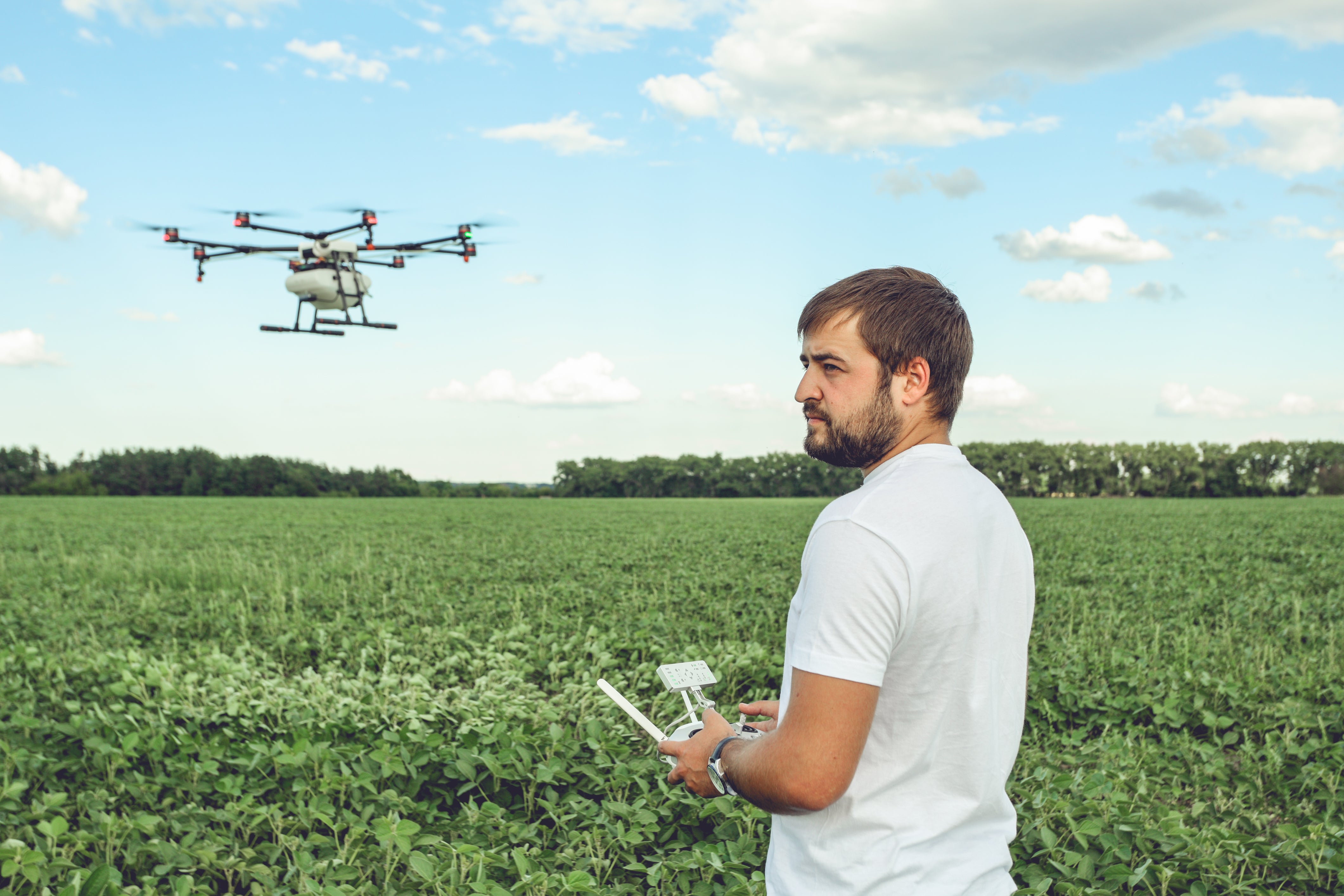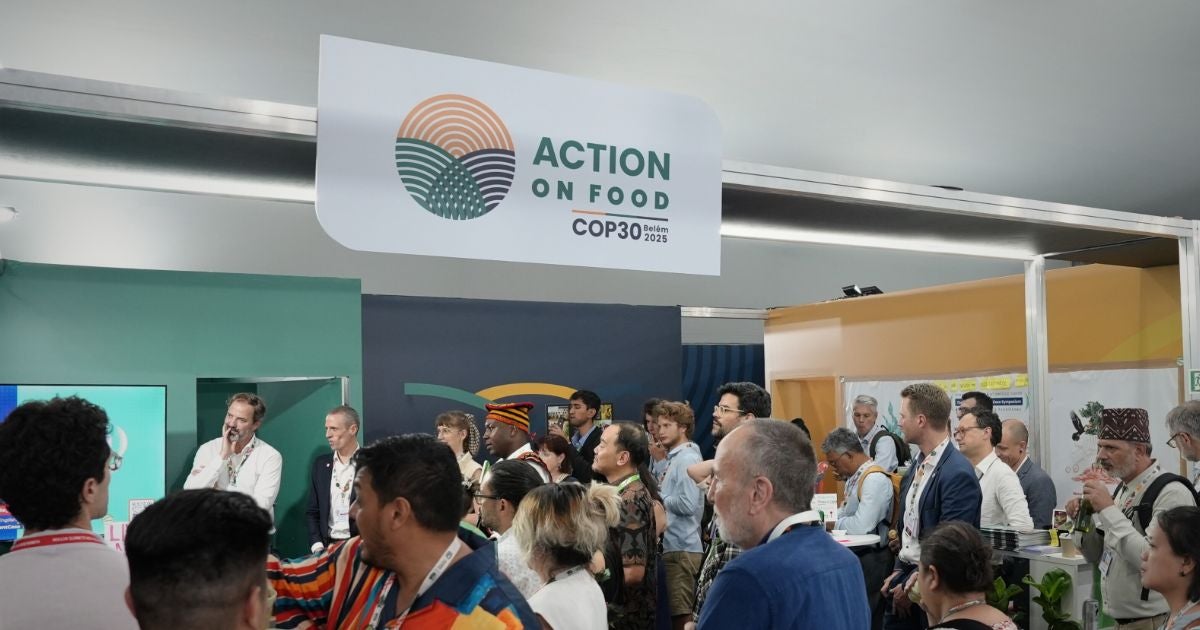There’s good reason to end the agriculture versus the environment fight
 On paper, I appear to be the picture perfect stereotype of an east coast liberal: I’ve been working at environmental nonprofits for over 20 years, I’m an Ivy League grad, and I live in the “bluest” county in Virginia. When it comes to first impressions in the world of agriculture, I’ve been met countless times with skepticism and even contempt.
On paper, I appear to be the picture perfect stereotype of an east coast liberal: I’ve been working at environmental nonprofits for over 20 years, I’m an Ivy League grad, and I live in the “bluest” county in Virginia. When it comes to first impressions in the world of agriculture, I’ve been met countless times with skepticism and even contempt.
The reality is that I spend nearly every waking hour of my career collaborating with farmers – exploring ways to implement on-the-ground practices that help producers save money and protect yields while also reducing impacts to water and air. After years of building relationships, I’m proud of the diverse and unlikely partnerships I’ve formed. Many of my closest friends and allies would be labeled as “big ag.”
But I’m worried that today’s political divisions will roll back the decades of progress reducing nutrient runoff across the Corn Belt and beyond. I don’t want to see doors closed because of assumptions on either side of the political divide that now dominate the country.
Ag and environmental tensions on the table
“Sustainability and profitability can and must go hand-in-hand.”
Everyone seems to be walking on edge and hesitant to engage in constructive dialogue. Even among like-minded conservation organizations, there is disagreement about how to proceed – should we protest, or roll up our sleeves and try to find common ground even with those who appear to be adversaries?
I’m of the latter camp – and I suggest we change the conversation to something that rings true, time and again: economics drive real change.
[Tweet “There’s good reason to end the agriculture v. the environment fight, says @FriedmanSuzyhttps://edf.org/7ma”]
Speaking the same language
Sustainability and profitability can and must go hand-in-hand. For years, farmers have told me that environmental initiatives cannot come at the expense of profits. And that’s never been more true than today, as the economy was top-of-mind for voters in last year’s election.
To keep farming, growers need to be profitable. This is not easy, thanks to record low farm income levels and commodity prices. And from an environmental perspective, only those initiatives that make good business sense will get to scale and be truly successful.
Working in agriculture for nearly two decades, I’ve learned that farmers are innovators and business minded. They don’t want to be told what to do (let’s be honest – who does?), but they want to be given the opportunity to make decisions based on market opportunities.
So if environmentalists want sustainability at scale, what we ask of farmers has to be good for their bottom line. Regulations clearly have a role, and they can even make good business sense, but farmers are far more motivated by economic sustainability – they have families to feed and businesses to run.
I don’t see the political divisions letting up anytime soon. But I do think agriculture is one area where, because sustainable farming practices can and do lead to big cost savings and even increased yields, farmers and environmentalists can meet each other halfway.
This post originally appeared on Agri-Pulse and is shared with permission.
Related:
How Congress can help farmers stay profitable and resilient >>
Why wholesale repeal of environmental protections is a losing business strategy >>
Farmers’ voices are essential to figuring out sustainability. Let’s listen up. >>













7 Comments
Once farmers learn to restore the capacity of their soil to function, the symptoms of erosion and nutrient runoff cease to exist. Restoring soil to health and full functioning capacity can be accomplished in a very economical manner that will continue to pay dividends into the future. Many farmers have already figured this out. The sooner we can educate everyone in agriculture the sooner we will have profitable farmers, better soils, cleaner water, greater biodiversity, etc. I wrote a book about restoring soil health if you are interested in learning more. http://amzn.to/2bqmTa0
Ok, that’s great. It’s swell that Agri-Pulse published your stuff. That’s a nice way to reach the farming community.
What are you doing to reach the nonsense peddlers who are driving the anti-GMO sentiment with this message? Have they offered to publish your plea?
What are you doing to talk to the mommy bloggers who are misleading people on these issues? That’s where much of this drama is coming from.
Thanks so much for your comment. You’re right — there is a lot of work to do in bringing stakeholders to the table to talk about finding common ground.
I wish people would understand the HUGE environmental impact that “non gmo” farming has on our planet. If we were to go back farming that way, it would be a massive backwards step for our civilization. Two words “carbon footprint”. Very nice article, but we need to get the massage to the general public. Thanks, there are two sides to every story.
Thank you for your work on building bridges between stakeholders. Farmers income–especially family farmers working their land–is on the line each year and those of us that consume farmers’ production need to share the risks and support financial incentives to build deep healthy soils, manage nutrients and help adapt to the changing climate.
My question to all of you is: what food choices are you making today? what choice did you make last night? It comes down to consumer’s food choice! Farmers just supply the demand. I farm without chemicals, 2000 acres organic and demeter certified, fish friendly etc. and we have to purchase farming equipment from Italy (spaders), Germany (Clemmons, under the vine cutters). So, talk to John Deere, all of the equipment manufacturers who make it almost impossible for the small farmers to own equipment. They do NOT manufacture equipment to farm without herbicides… We scrounge parts and repair things for years NOT sustainable. Each consumer needs to decide whether or not to purchase their food from Costco or the local farmer EACH AND EVERY DAY. It’s embarrassing that there are posts about how easy it is to farm without erosion run-off. I know how to do it, and if I farm this way, who will pay for my product each day to keep me in business? So that is why it comes down to: FOOD CHOICE, every person gets to make this choice every day at every meal.
Suzy, thank you for your work. There are many folks in the ag community that recognize the good work you (and EDF) are doing. Your efforts to support agriculture are welcome and appreciated. Yes it is really easy to be critical of the work you are not doing, but it doesn’t seem that agriculture is going to win very many friends by always casting stones. Instead maybe we all should all be a little more appreciative for those partners who are helping agriculture, both organic and GMO. There is a place for everyone.